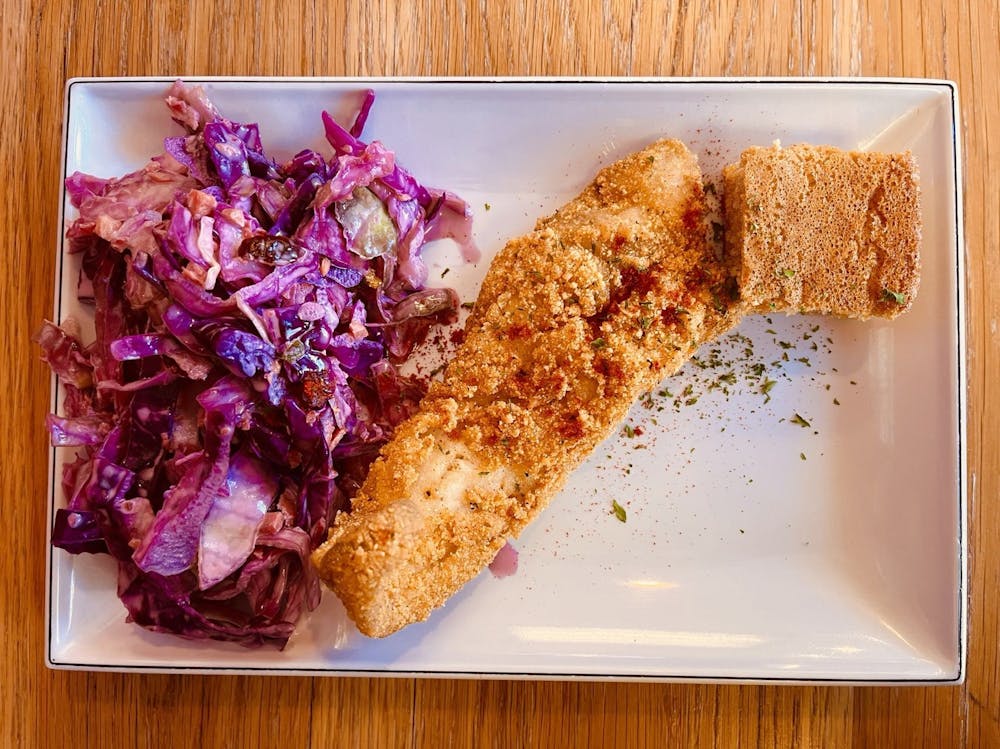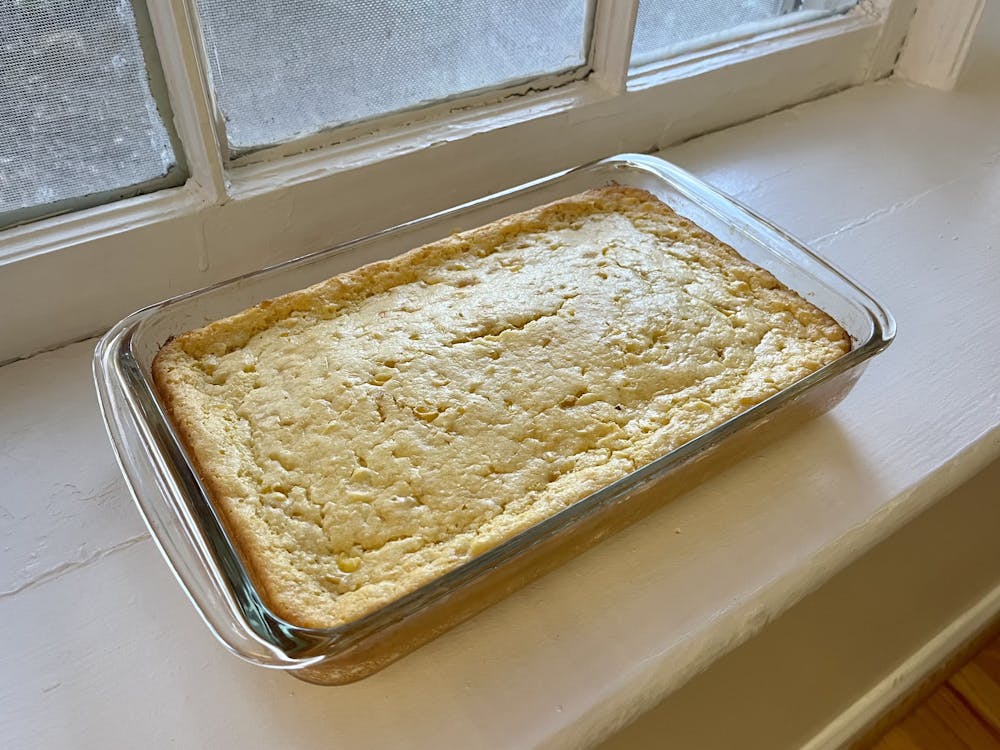My trip to Soul Food Joint was a savory and informative experience about African American cuisine, history and the value of Black-owned small businesses. As an international student, African American culture is something I barely knew before I came to the United States. Once I came here, however, I found that soul food is a first step to learning about a different culture.
When I first saw the phrase “soul food”, one question automatically arose — what does “soul” mean? Briefly speaking, the term "soul food" first appeared in the mid-1960s, when "soul" was a popular term for African American culture. Soul cuisine is, at its foundation, down-home cooking with origins in the rural South and is rooted in long-established family recipes. Amiri Baraka, a poet and civil rights activist, released his essay "Soul Food'' in 1962 in response to white critics who claimed there was no African American food. Over the past 60 years, soul food has gradually spread across the United States. and become a symbol of African American culture.
Soul Food Joint is 1.5 miles from the University and is open from 11 a.m. to 9 p.m. Monday through Thursday, 11 a.m. to 11 p.m. Fridays and Saturdays and 11 a.m. to 7 p.m. Sundays. On a bright Sunday afternoon, I rushed to the restaurant and was excited to delve into the world of soul food. I was honored to have the opportunity to interview the restaurant owner, Shaun Jenkins, and hear the story behind the establishment.
The entrance is on 3rd St. NE, beside the restaurant’s open-air areas. According to Jenkins, a window facing East Market Street opened Feb. 9 for pick-up orders and desserts so that customers can grab their food and streamline the takeout process. Upon entering the restaurant, the warm ambiance adorned with antique wooden chairs and tables made me feel at home. Posters of African American culture decorated the red walls, giving the impression of a family restaurant with a rich history.
The restaurant provides many choices of meat — including chicken, fish and pork. From mac and cheese to fried deviled eggs, different sides are designed to cater to all kinds of preferences. Customers can have their soul food platter with their choice of meat or a sandwich with meat on a potato bun. Both are served with sides, sweet cornbread and beverages. After soliciting a recommendation from the owner himself, I ordered one platter with fried chicken and candied yam and the other with fried fish.
Since all the dishes are made fresh, I couldn’t wait to try the crispy golden fried chicken and fish. The juicy tenderness of the fried chicken blended perfectly with the outside crispy layer. I could not help having a second bite of this intriguing combination. I made sure to balance out the savory flavors of the chicken with some candied yam and sweet cornbread, whose sweetness enhanced every unique flavor in the platter. For my next visit, I may try deboned pork ribs and sandwiches.
I was fascinated by this extraordinary meal, so I became more excited to hear about the story behind this authentic soul food restaurant. It is not surprising that a restaurant with such delicious food is very popular. Although there were not many people dining in the restaurant, I could tell business was booming as takeout orders kept coming in and Jenkins answered phone calls regarding catering events. At 3:30 p.m., he was finally available for an interview with me.
Jenkins’ family is originally from Camden, N.J. and relocated to Charlottesville 20 years ago. They started as a catering kitchen and turned it into a full-service catering company in 2014. At first, they set up a window at the corner of the restaurant's current location to sell takeout food, and came up with a small menu of only six items, including fried chicken, baby back ribs and collard greens. Most of these are still their most popular dishes nowadays.
As their soul food became more and more popular, they opened the space up for customers to dine indoors in 2019. To fulfill different preferences, the menu has since expanded to include a kid’s platter, a family meal, deboned meat for sandwiches and even a hidden menu for catering. Jenkins reckons that the reason for their continued success is because they chose a successful niche and venue to appeal to everyone around.
“A lot of the Black-owned restaurants that survived through the pandemic have survived — survived because I think the style of food that we had is comforting,” Jenkins said. “Family wanted our food [back then] and they want it now. And a lot of it is made fresh for us.”
The ingredients of many dishes from Jenkins’ family date back over 70 years, some of which can be traced back to his own grandmother, who had special ways of bringing families together. Also, Jenkins and his mother had modernized some dishes for their customers’ contemporary tastes. For example, his mother created the new batter, which is key for a delicious fried chicken, from an old recipe, and Jenkins uses the same recipe she conceived all those years ago.
For Jenkins, the restaurant is the main source of income that supports his family. Fortunately, their business was able to continue to provide to their customers for the past two years because the business began accepting takeout and delivery orders at the beginning of the pandemic. With the Charlottesville restaurant set in stone, Jenkins is considering opening more locations around the country in the future as well.
Jenkins sent his sincere welcome to students to come dine at Soul Food Joint, especially for those who want to find a place to hang out together and have social events.
I had a wonderful time eating at Soul Food Joint, it was a great place for me to enjoy a relaxing and delicious meal. Fresh, delicious soul food at an affordable price is always worth trying out, especially with the restaurant’s convenient location. You will always be greeted with warmth and hospitality from this family restaurant and you will undoubtedly appreciate the traditions that have been passed down for decades.





